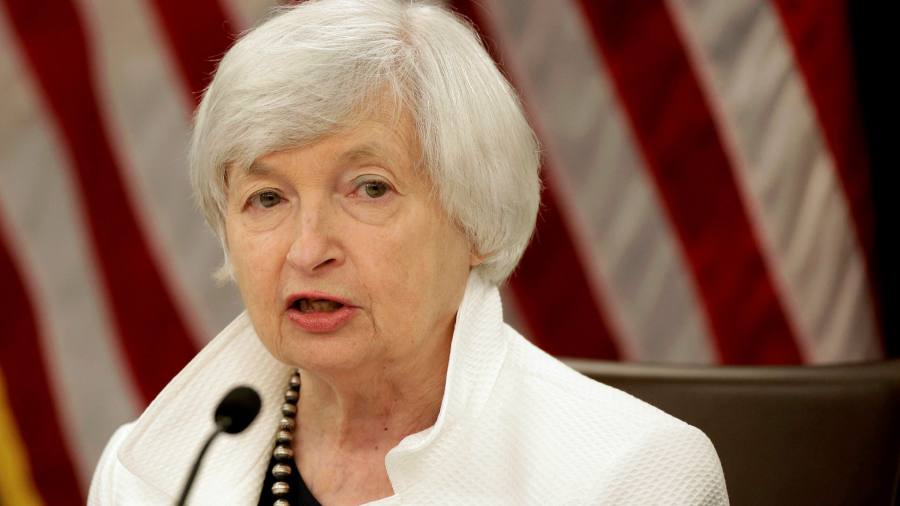[ad_1]
There has been no phrase in economics as immediately fashionable as “act bigâ€, after Janet Yellen said it was the smartest thing that policy could do in response to coronavirus. The Treasury secretary was referring specifically to the US, but the phrase has spread internationally faster than the virus itself.
Countries want to act big with fiscal policy because it protects people from hardship in a period of crisis. It also provides stimulus and hope for the recovery ahead, and supplies real firepower when central banks have already set interest rates to record lows. If things go really well, it might even deliver better economic performance than before the pandemic.
So, few people disagree with Yellen on acting big. The problem is that not many have a good idea what “big†means. US Democrats are convulsed in an argument about whether President Joe Biden’s $1.9tn stimulus is big or excessive. What is right for one country will also not be right for all.
In his Budget on Wednesday, chancellor Rishi Sunak defined big as an additional £65bn stimulus over two years, the equivalent of 3 per cent of UK national income. This stimulus is large compared with Budgets of years before coronavirus, but small compared with the 9 per cent of US GDP in Biden’s plan.
Sunak was wise, however, to plump for a smaller stimulus than Yellen because, sadly, evidence suggests that in the UK the right level of stimulus and the scope for a better recovery is smaller than in most advanced economies.
US inflation has been struggling to meet its 2 per cent target for some years, suggesting inadequate demand. The problems in the eurozone are even worse. Yet there is little sign that the pre-pandemic UK suffered chronic low demand and spending, leaving inflation probably below target.
Like the US, unemployment was close to a 50-year low at under 4 per cent. But, unlike America, the UK employment rate was close to record levels and had been rising steadily through the 2010s. Moreover, with a persistent current account deficit, the UK was happily spending more than it produced. None of this suggests demand was weaker than supply, or there was a lot of spare capacity which would benefit from fiscal stimulus.
Rather, the big UK problem of the past decade was neither the labour market nor deficient demand, but terrible productivity performance. This cut the sustainable economic growth rate from close to 3 per cent before 2007 to a little over 1 per cent after the financial crisis. It may be that misguided austerity policies were responsible — but the evidence for this is very thin.
The UK had two productivity problems: a persistently large mass of weak, small companies which have always been unproductive but able to survive, if not thrive; and a sharp drop in the growth rate of productivity in its best companies, sectors and regions in the 2010s. There is little evidence that austerity held these businesses back. UK productivity growth was weak when demand was feeble during that decade, and also when it was strong.
Worse, with Brexit and some evidence of an exodus of foreign nationals, it is reasonable to think that the supply side of the UK economy has been damaged further in recent years. As a result, we need to be extra careful with demand growth so as not to destabilise the economy further.
I think there is no doubt that the right policy for the coronavirus recovery period is to test the limits of growth, and wait to see inflationary pressure before applying the brakes. But we should recognise that we have less room for manoeuvre than our largest trading partners, the eurozone and the US.
In keeping with Britain’s obsession with class, perhaps the right motto for the UK is act big, but know your place.
[ad_2]
Source link





